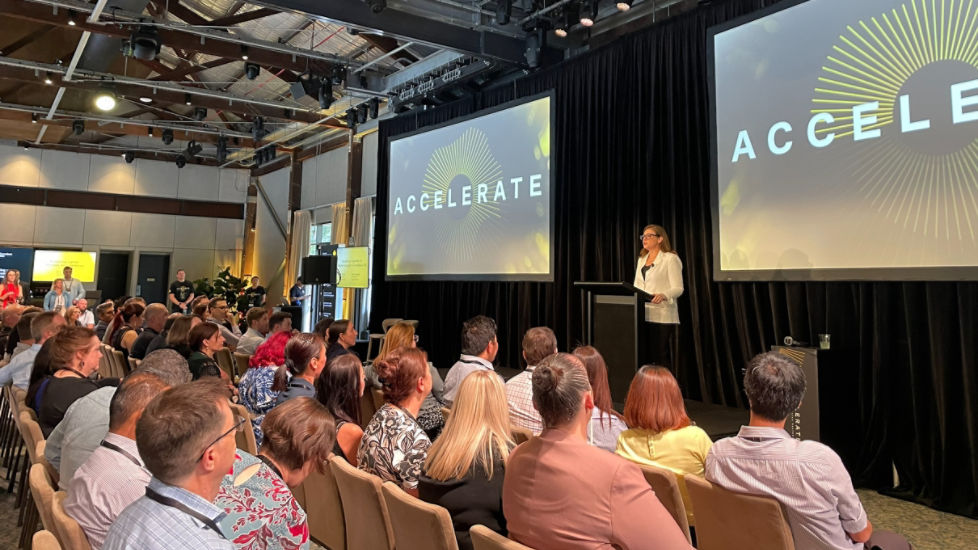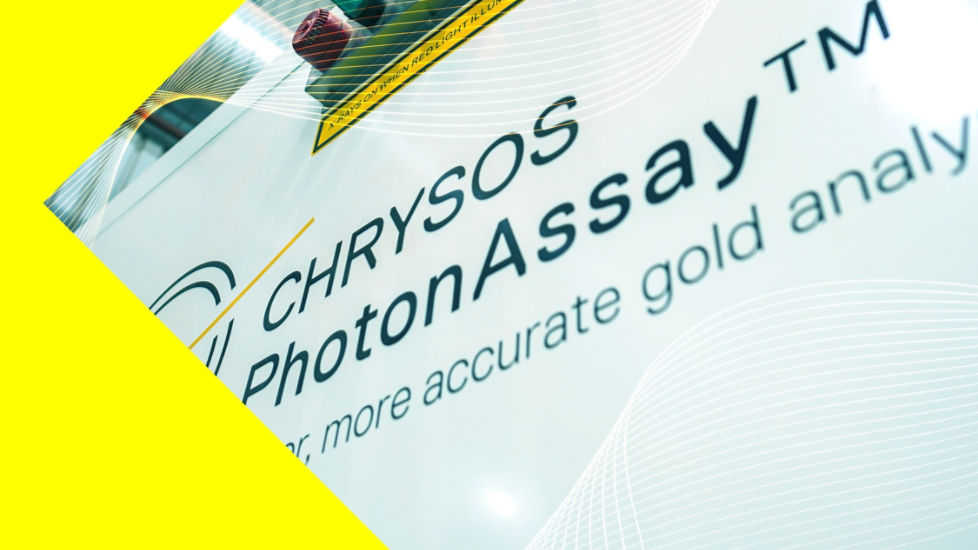More than a decade since its launch, blockchain, the technology behind cryptocurrencies, has entered the mainstream.
What is blockchain? At its core, blockchain provides a secure way to track transactions through a distributed digital ledger. While multiple people can access all or part of the data, they can’t delete the record of any changes or amendments to the information, making it a single source of truth.
Blockchain technologies will be instrumental in addressing key issues exposed by COVID-19, creating more sustainable supply chains for the future. That’s important at a time when 60% of companies expect to be disrupted by a competitor with superior supply chain capabilities, according to a recent International Data Corporation (IDC) report.
The financial payoff for moving supply chains to a networked solution, such as a blockchain-powered platform, can be significant. After analysing nine organisations running multi-enterprise supply chain networks, IDC found a return of more than US$4 in benefits for every US$1 in investment.1
How blockchain can strengthen global supply chains
CommBank has been testing the efficiency of blockchain for several years now, and was a global leader in its application in trade transactions and debt markets. The bank first tested the technology’s application to supply chains in 2018 with its Trade Chain experiment, in which it successfully shipped and tracked 17 tonnes of almonds from regional Victoria to Germany using blockchain and the Internet of Things.
Louise Anderson is an Executive Manager in CommBank’s Emerging Technology team, leading the customer innovation portfolio. When her team interviewed decision-makers in industries from mining to real estate to understand their key technology and business challenges, they found sustainability in the supply chain was a key concern.
Businesses were not only concerned to ensure their suppliers were operating in line with sustainability targets, they also needed to evidence compliance with a growing range of requirements from both regulators and customers, including ethical sourcing and anti-slavery rules.
“They weren’t just asking ‘what's my exposure at a country or industry level, but what’s my exposure with the specific supplier I'm working with and the specific site manufacturing the goods that I'm procuring?’, “says Anderson. “That’s where a technology like blockchain comes in.
“Blockchain provides visibility across end-to-end supply chains, from the movement of goods to the facilitation of payment, and it also captures data around sustainability metrics. Businesses can think beyond their own operations to their relationships with suppliers and their suppliers’ suppliers, and assess the broader impact they have.”
Jake Potgieter, Managing Director for Efficient Supply Chains at CommBank, says blockchain technologies can also help address some of the weaknesses in global supply chains exposed by COVID-19, enabling businesses to identify issues faster and avoid disruption by seamlessly switching suppliers.
“The visibility that blockchain provides allows manufacturers, retailers and logistics providers to identify pain points more easily and act more quickly in addressing issues as they emerge, such as bottlenecks or product shortages,” Potgieter says.
Steve Vallas is CEO of Blockchain Australia, an industry network for blockchain creators and users. He says benefits like these are set to drive increasing adoption of blockchain technologies across a range of applications – from governments using blockchains to authenticate COVID-19 vaccine certifications, to the US Air Force Blockchain Approach for Supply Chain Additive Manufacturing Parts (BASECAMP) for printing 3D parts on the battlefield.
“Although it was originally driven by financial services, other businesses are starting to transact with digital assets because the technology is so much more accessible and efficient,” Vallas says. “So we’re seeing the deployment of massive amounts of funding for the next stages of development.”
Blockchain technology and the role of smart contracts
Tim Bass is CEO of Block8, a venture studio that partners with founders, startups and enterprises to create new products and services using blockchain and distributed systems. He identifies smart contracts as another level of efficiency in blockchain technology.
“Typically, you’ve got a number of actors in a supply chain, from the producer all the way to the consumer … what blockchain can do is take some of those intermediaries out of that supply chain and automate them with technology,” he explains
“We’ve historically done that with cloud and web-based technologies, but there’s another level of efficiency with blockchain technology, specifically, smart contracts.
“What we can do now is automate the role of a trustee, or automate the role of a validator, or automate the role of someone who acts as a merchant in the middle of two transactions.”
Not only do smart contracts remove the need for records to be copied and transferred from one party to another, they can also be programmed to trigger transactions automatically, without human intervention.
Vallas says harnessing blockchain and smart contracts across the supply chain can yield many benefits, including:
- Efficiency gains. Smart contracts can automatically track goods from production to delivery, creating an audit trail that streamlines administration, eliminates errors, and cuts processing times.
- Cost savings. By replacing manual processes, smart contracts help cut the time and costs of handling documents and validating data.
- Traceability. Smart contracts can offer complete traceability, enabling businesses to guarantee the provenance of the goods they use and sell. Not only is that essential for ethical and sustainable sourcing, it also enables businesses to rapidly find and fix supply issues, from faulty components to food contamination. In the US, Walmart has cut the time taken to trace the source of food from seven days to 2.2 seconds, using the IBM Food Trust Solution on the Hyperledger Fabric blockchain.
- Built-in compliance. From food regulations to anti-slavery legislation, smart contracts can be designed with regulatory requirements built in, automatically evidencing compliance at the same time.
- Integration with core systems. Blockchain and smart contracts can be integrated with other technologies such as smart sensors and radio frequency ID tags throughout the value chain, supporting core activities like stock management and dynamic pricing.
“I think in the future, you’ll see a democratisation and automation of low value, generic processes that add very little value to a particular industry. And there’ll be a lot more focus on their unique USP (unique selling proposition),” says Bass.
Blockchain is a key topic at the AccelerateRegTech 2022 conference.
Our blockchain experts
Louise Anderson is Executive Manager, Emerging Technology and Open Innovation at CommBank. She leads a portfolio of innovation initiatives focused on accelerating the adoption of new and emerging technologies across the bank. Within her role, she primarily works with CommBank’s customer facing business units, taking an experimentation-led approach to designing and developing new products and digital experiences for customers. Before moving into emerging technology, Louise worked in strategy development with Commbank’s Institutional Banking & Markets team and with Fidelity International in London.
Tim Bass is the co-founder and CEO of Block8 Technologies, Australia’s leading blockchain venture studio. Block8 partners with startups, enterprise and government to bring a professional product management and technical development capability that takes ideas from zero to one. Tim has worked in the technology sector for 15 years and delivered infrastructure and software projects all over Australia. He has spent the past five years as a founder and director on various boards and advising early stage companies. He has significant compliance, governance and capital raising experience. Tim is a member of the RegTech Working Group for the Australian National Blockchain Roadmap.
Jake Potgieter leads CommBank’s Institutional Banking and Markets team responsible for managing the bank’s largest institutional client relationships across the Industrial, Transport and Consumer market segments globally. The team provides a full range of capital raising, transactional and risk management products and services. Jake has more than 25 years’ experience in financial services spanning multiple industries. He joined CommBank in 2011 leading teams across institutional coverage, as well as client and structured advisory teams. Prior to joining CommBank, Jake was with Macquarie Capital where he led and executed M&A, equity and debt financing transactions, as well as strategic advisory mandates for clients globally.
Steve Vallas is CEO of Blockchain Australian. His lifelong study of economics and new technology has evolved into a deep understanding of blockchain technology and its impact across industries. That includes building a network of relationships and connecting people to advance the development of the blockchain sector in Australia as well using technology to tailor options for businesses, taking into account their resourcing, time and market-fit constraints.




